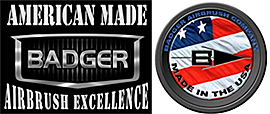
The Focke-Wulf Ta 183 Huckebein was a design for a jet-powered fighter aircraft intended as the successor to the Messerschmitt Me 262 and other day fighters in Luftwaffe service during World War II. It was developed only to the extent of wind tunnel models when the war ended, but the basic design was further developed postwar in Argentina as the FMA IAe 33 Pulqui II. The name Huckebein is a reference to a trouble-making raven (Hans Huckebein der Unglücksrabe) from an illustrated story in 1867 by Wilhelm Busch.
In early 1944, the Reich Air Ministry (RLM, for Reichsluftfahrtministerium) became aware of Allied jet developments and were particularly concerned that they might have to face the Gloster Meteor over the continent. In response, they instituted the Emergency Fighter Program which took effect on July 3, 1944, ending production of the bomber and multi-role aircraft in favor of fighters, especially jet fighters. Additionally, they accelerated the development of experimental designs that would guarantee a performance edge over the Allied designs, designs that would replace the first German jet fighters, the Messerschmitt Me 262 Schwalbe and Heinkel He 162 Spatz.
More on the Ta-183 after this link.
PM MODEL 1/72 Focke-Wulf Ta 183
This is the 1/72 Focke-Wulf Ta-183 ‘Huckebein’ German Experimental Jet Fighter from PM Model kit # PM-213. PM Model is a Turkish company that we don’t get to hear about much on this side of the pond. They make some obscure aircraft subjects in 1/72. Back in 2011, I did submit this entry on the website of their PM Model 1/72 Horten 229. Along with the Horten 229, this kit and the Messerschmitt Me P-1111 in the same order. It was until recently that I decided to build them both as side projects.
The 1/72 Focke Wulf Ta-183 ‘Huckebein’ from PM Model is a very humble kit. The parts count is very minimal and comes molded in light grey + clear. Flash is present on the sprues and is evident in the small parts thus requiring extra cleaning. I did find that both sides of the fuselage fit well but the model builder will have to add some extra effort especially on the top near the intake. The detail on the fuselage and wings is receeded and after some sanding, these lines were re-scribbed -where needed- and cleaned with a toothbrush. The canopy has the frame outline *very* thin. Masking even with bare metal foil will render little to no detail. So instead, I used 1/16” stripping and masking tape from Pactra.
As it is to be expected, the landing gear wells and landing gear itself is very sparse. You can either add some more detail from scratch or display the model in flight. I like to display many of my 1/72 aircraft models in-flight. As much as I wanted to have a seated pilot, I looked everywhere in the shop (on a Sunday) and couldn’t spot one in the leftover bins.
Whatever you do, keep 1/16” masking tape in your toolbox. You never know when will it come in handy.
The kit was cleaned with a soaked painters brush in 90% IPA and allowed it to air dry. I painted the entire model with Lichtblau RAL 76 from Mission Models Paints MMP-051. The green mottled camo was done with Resedagrun RAL 6011 also from Mission Models Paints MMP-018. After that, the entire model received a heavy coat of Clear Gloss MMA-006. I was surprised to find out that the decals on this humble kit were of very good quality. After sealing them with yet another coat of clear gloss, I did a pinwash with Ammo Mig US Modern Vehicle Brown A.MIG 1007. The final touch to blend all together was adding a subtle filter. For that, I used the Ammo Mig Tan for 3 Tone Camo A.MIG 1510.
Want to see a Focke Wulf Ta-183 Huckebein in 1/18 scale? Click here.





















